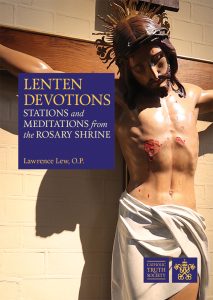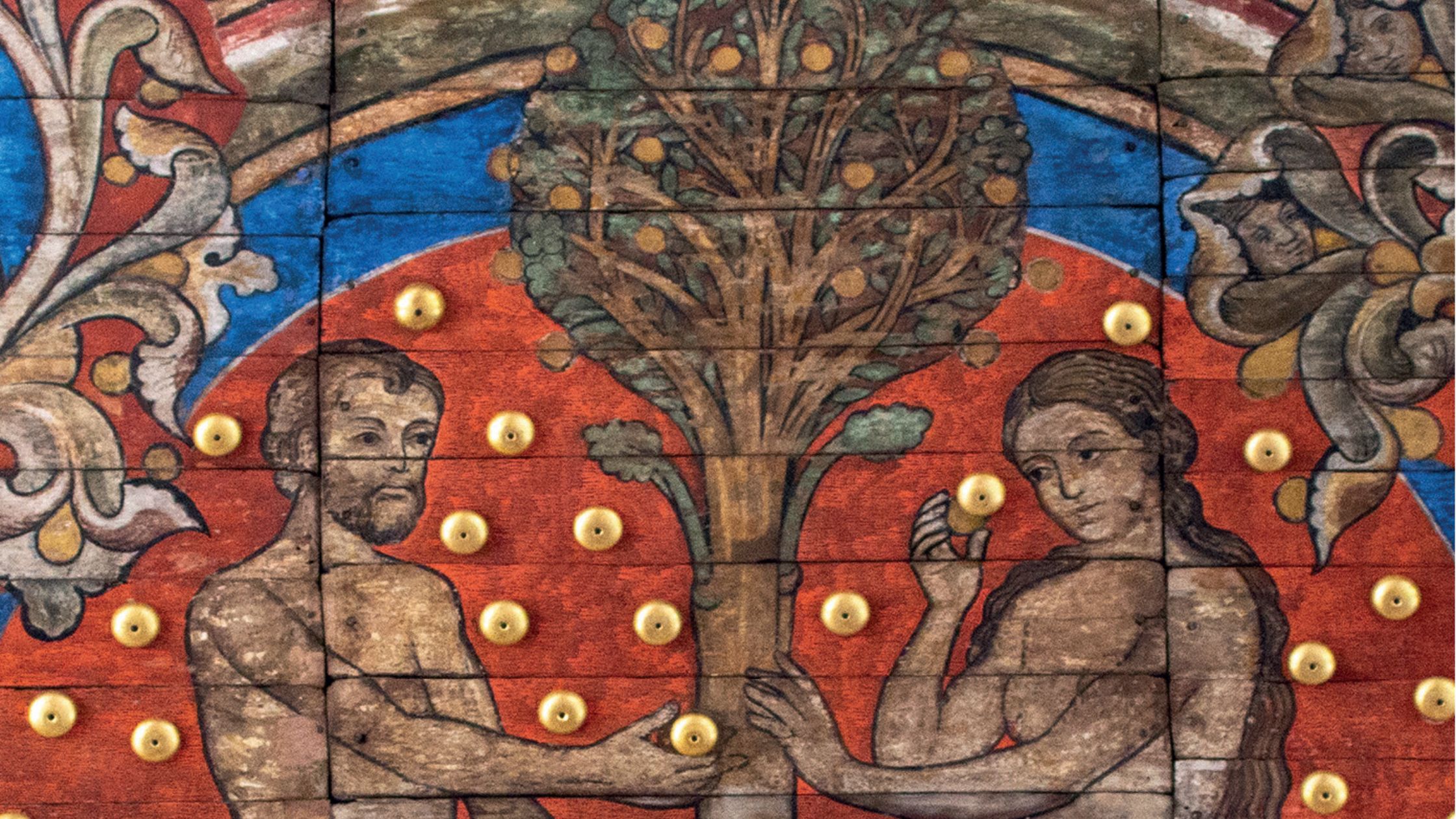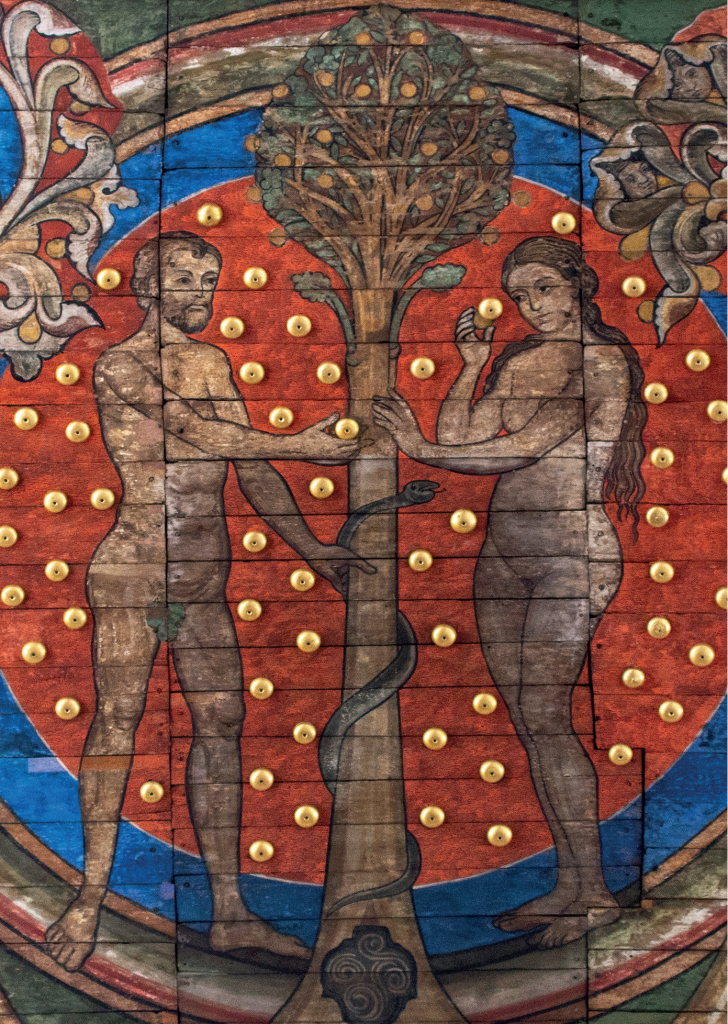The Seven Last Words of Our Lord have, from the sixteenth century, been the subject of meditations of Good Friday. Fr Lawrence Lew Op’s set of reflections, the first of which is presented here, was first preached in Holy Week of 2022, during the Rosary Shrine’s annual “Holy Week Retreat”.
The first word (see Lk 23:34):
To God, his Father:
Father, forgive them, for they know not what they do.
“Only God could love us human beings, because I certainly find it difficult!” It is so easy to think this! Look at the kinds of terrible things we are capable of. We see it every day in the news, on the streets, and in countless other atrocities taking place across the world, unseen, untold, unheard. Then there are also the sins, the hypocrisies, the injustices of which we ourselves are capable. Each of us can look within and marvel, saying “Only God could love me. ”
And he does. The astounding truth about God is that he loves us. He loves you. He loves those who are killed although innocent – insofar as any human being can be called innocent – in diverse places around the world. But then, he also loves those who do the killing, who order unspeakable atrocities, who mastermind war and who perpetrate all the other ongoing evils around the world. Yes, only God could love us human beings, even the horrible ones we would happily do without. But, thankfully, God does not think or act like us. As C. S. Lewis observes: God does not love us because we are lovable. God loves us because he is love.
During the fifth week of Lent, at Mass we pray the Preface of the Passion of the Lord. We hear each day:
[B]y the wondrous power of the cross your judgement on the world is now revealed and the authority of Christ Crucified.
Our human sins, our violence and hatred, our killing of the innocent and our abuse of the powerless is what takes Christ to the cross. On the cross, Christ shows forth God’s judgement of the world’s sins, for it is our sins that have nailed him there. But it is the love of Christ for wounded sinful humanity that keeps him there. And so, when Christ judges us from the cross, his judgement and the sentence he passes upon us reveal the unfathomable love of God for human beings – and only God can love us like this.
Christ says: “Father, forgive them, for they know not what they do. ” Hanging on the cross, Christ is the victim of the injustice of his own people, the Jewish authorities, of the fickle bloodlust of the crowds, of the cowardice of Pilate; and he has been expertly executed, nailed to the wood of the cross, by the Roman soldiers. Almost all these people, arguably, knew what they were doing, and still did it anyhow.
And yet, what is the judgement of Christ? How does the One who is Love Incarnate speak? He says: “Father, forgive them. ” And then, going beyond this, he makes excuses for us: “They know not what they do. ” This reminds me of how a parent would speak of her young child: “Please don’t mind her, she didn’t know what she was doing. ” We often make excuses for the ones we love, usually those who are still young, immature, inexperienced, unwise – those who do not know better because of their youth or a state of mind. Christ does the same for us.
Therefore Christ, whom St John calls our ‘advocate’, is not only our judge but he is also our defence lawyer, pleading our case for us. The Beloved Disciple wrote: “If any one does sin, we have an advocate with the Father, Jesus Christ the righteous” (1 Jn 2:1). Moreover, Christ promises us that we have “another Advocate” besides him to also intercede and defend our cause, who is the Holy Spirit (Jn 14:16). But here on the cross we see Christ as our advocate, interceding for us, pleading our case, putting forward the mitigating circumstances for our actions: “They know not what they do. ”
In a fundamental, metaphysical way, this is true. On account of original sin, man is now born in what St Thomas Aquinas calls a “double darkness” of ignorance and sin – we know not what we ought to do, and even when we do know, our wills do not follow on from our reason. Many of us are familiar with this struggle, particularly during Lent, and many might even have despaired. How often do people claim that they are too far gone to come back to church or to confession? But that, of course, is what the Enemy – the Devil, who is called ‘the Accuser’ in the Bible – wants us to think. But what does the Lord God actually say? “Father, forgive them, for they know not what they do. ”
St Paul vividly describes the universal struggle with sin. He said in his letter to the Romans: “I do not understand my own actions. For I do not do what I want, but I do the very thing I hate” (Rm 7:15). Thus captivated by sin, St Paul then exclaims: “Wretched man that I am! Who will deliver me from this body of death?” Who, indeed, shall deliver us and set us free? The one who has the power to judge and who also is our advocate; the one who says today: “Forgive them, for they know not what they do. ” St Paul says, “Thanks be to God through Jesus Christ our Lord!”, for St Paul knows that the struggle against sin should not end in either despair or acquiescence. Rather, unlovable though our sins make us, we must also know that God is love, and therefore loves us regardless, forgiving us even before we ask him, and longing for us to turn to him and receive his mercy, his love, and his comforting words: “They know not what they do. ”
I recall as a novice reading and re-reading a tantalising reflection by Fr Simon Tugwell, O. P. , in which he suggests that Adam and Eve had sinned ‘innocently’, by which he means that they were too young, too immature, to really withstand the Enemy’s temptations. J. R. R. Tolkien also refers to the race of Men as the “younger children” of the Creator of his Middle Earth. And so, in this reading of the Fall, Adam and Eve might be said to “know not what they were doing” when, doubting the wisdom and goodness of God, and swayed by the Devil’s enticement of divinity, they rebelled against the One who alone can grant us a share in his divinity, and who indeed desires to do this in the fullness of time through Christ’s Incarnation. Our first parents, then, imprudent in their youthfulness, fell into sin and disobedience. Perhaps our Lord hints at this mystery of original sin with these words on the cross.
But why did God permit this, then, and what about all the pain and anguish that sin brings? St Irenaeus thinks that sin is permitted so that Adam might realise as a creature that he depends on God for his all. Is this not what we are reminded of on Ash Wednesday as those ashes are sprinkled on us, a symbol of the dust from which we were made and to which we shall return? If during this Lent we have fallen and failed and fumbled and discovered how flawed we are, then perhaps this is the point: like Adam, we can realise our absolute dependence on God, our need to turn to him daily and constantly seek his mercy and grace. On a global scale, in a world that has proclaimed God to be dead, or that has declared its independence from God, perhaps the tragedies that surround us point out that we do, after all, need God.
To summarise all of this we can look to the English mystic Julian of Norwich, who, in her beautiful Showings of Divine Love, writes:
[Sin] cannot be known except by the pain that is caused thereby. This pain is some thing, if I see it aright, existing for a time. For it purges us and makes us to know ourselves and to ask mercy; for the passion of our Lord is our comfort in all this – and such is his blessed will. And for the tender love that our good Lord has to all that shall be saved, he comforts them swiftly and sweetly, saying: “It is true that sin is the cause of all this pain. But all shall be well and all shall be well, and all manner of thing shall be well.”
Amen!
Let us end this first meditation on the last words of Christ with the prayer that the Angel of Peace taught to the holy children of Fatima:
“My God, I believe, I adore, I hope and I love Thee! I ask pardon for those who do not believe, do not adore, do not hope and do not love Thee.”
 This reflection is extracted from our book Lenten Devotions: Stations and Meditations from the Rosary Shrine. Fr Lawrence Lew OP offers three powerful Lenten devotions: Stations of the Cross featuring photographs and meditations, the Canticle of the Passion based on words revealed to St Catherine de Ricci, and recollections on the seven last words of Jesus on the Cross.
This reflection is extracted from our book Lenten Devotions: Stations and Meditations from the Rosary Shrine. Fr Lawrence Lew OP offers three powerful Lenten devotions: Stations of the Cross featuring photographs and meditations, the Canticle of the Passion based on words revealed to St Catherine de Ricci, and recollections on the seven last words of Jesus on the Cross.
Find more powerful Lenten devotions and reflections, and support the mission of CTS, by ordering your copy of Lenten Devotions today.

